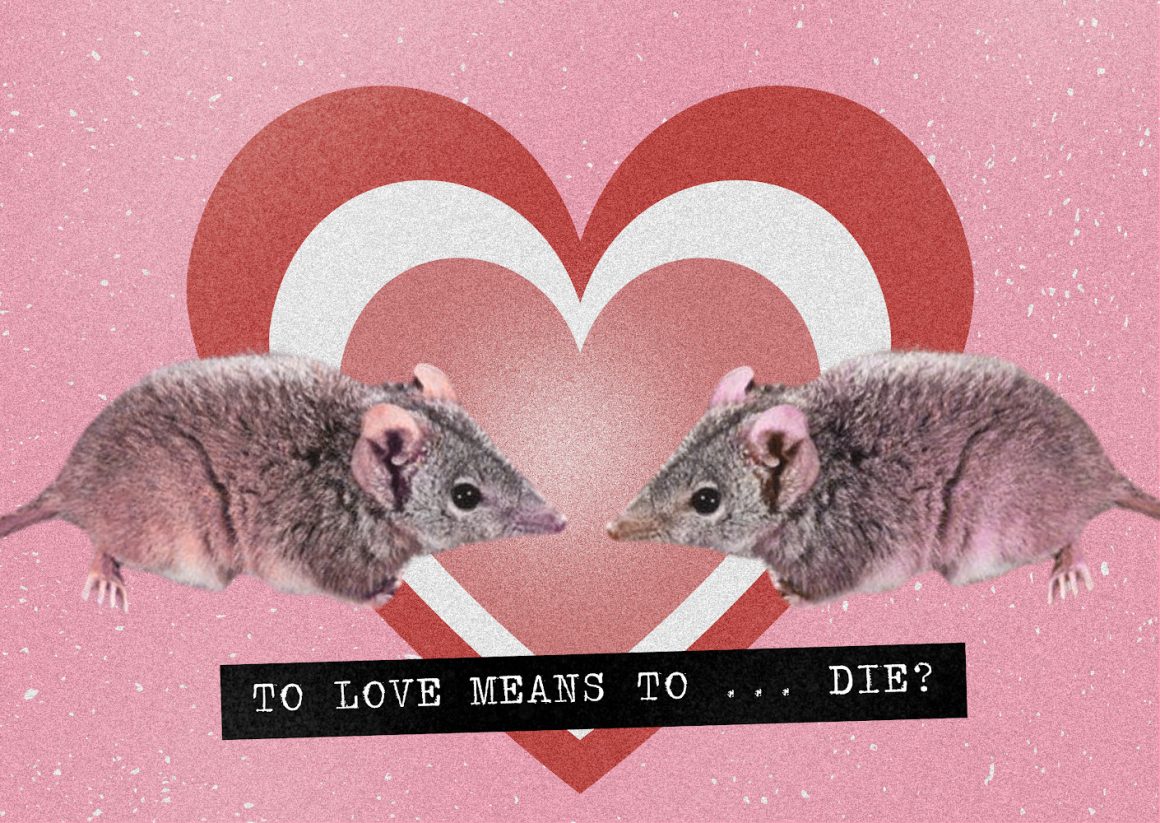
Give them sex or give them death
By Ramiro Bustamante Torres, February 12 2024—
A study published at the end of January revealed that two antechinus species have an interesting approach to their mating season. The two marsupial species — Antechinus swainosnii and Antechinus agilis, known as dusky and agile antechinus respectively — will give up sleep during their mating season to continue reproducing. Specifically, the study showed that only the males of the species would participate in reducing the amount of sleep they got and not the females. On top of losing sleep, the males would die after the mating season was over, meaning it was their only chance to produce offspring.
Regardless of what reasons we tell ourselves before pulling all-nighters, sleep performs a vital role in our lives and animals too. Losing a few hours of sleep can cause impairment in the short-term, and in the long term could bring a higher risk of chronic health problems. The study looked at the oxalic acid levels of the agile antechinus to determine if they were losing sleep. Oxalic acid has been used as a biomarker to determine sleep deprivation in humans and rats, and the expected drop of oxalic acid was observed in the antechinus showing they were facing sleep deprivation during mating season.
There is evidence of other species that have a single reproductive event in their lifetime, called semelparity. A common example is the Pacific salmon, while many more examples exist in insects and arachnids. For marsupials, males are usually the only ones to have a single chance to reproduce, and in this case, female antechinus can survive up to two mating seasons. There was a strong correlation between the decrease in sleep and an increase in testosterone. This suggests that males increase activity in favour of increasing their chances of mating with females during the mating season.
There is no clear evidence as to why the males die after the mating season, though two ideas were proposed as the cause of death. The first proposed explanation stated an increase in testosterone and another hormone, corticosteroid, could lead to organ failure and exposure to infections resulting in death. The second proposed explanation is related to the sleep deprivation that the males display during mating season. The issue is there had been some males that survived the mating season but became sterile, and they attributed their survival to the lab conditions. There could be a marker to signal death to the antechinus in the wild.
The study was done by lead researcher Erika Zaid from La Trobe University in Melbourne, Australia with colleagues from around the world, and the paper was published in Current Biology. While the idea of some small marsupials participating in a deathly debauchery might seem amusing, the evidence has provided more information on the role of sleep and the possible consequences sleep deprivation can bring.
